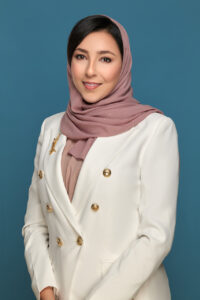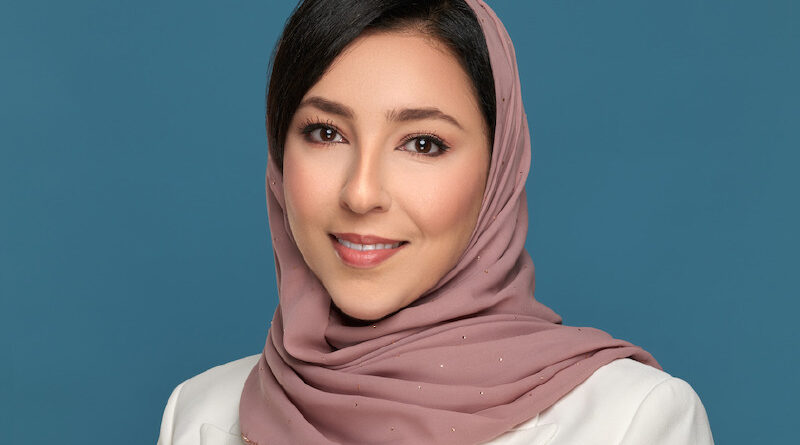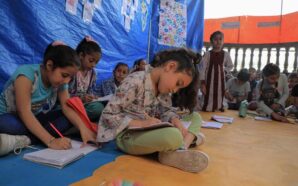Tell us about yourself and what inspired you to pursue your field of expertise?
I was awarded a Ph.D. degree in Experimental Medicine from McGill University in Canada, and I am currently working as an assistant professor in the Department of Biochemistry, College of Medicine and Health Sciences, Sultan Qaboos University.
I have always had a great interest and passion in science. During my undergraduate studies, I conducted my first research project as part of the curriculum and got trained in several laboratories in Oman and Canada, which fueled my passion and interest in the field. After that, I got two scholarships from Sultan Qaboos University to pursue my master’s and doctoral degrees abroad. While studying in Canada as a graduate student, I had the privilege of working under the guidance of great scientists and got the opportunity to join their research teams. All these experiences enriched and strengthened my passion for science and provided me with the scientific background and skills needed to work in the field of scientific research.
My interest in diabetes research in general began during my PhD studies under the supervision of the well-known Professor Constantin Polychronakos from McGill University in Canada. I am now continuing my research work in the same field. During my scientific career, I received several student and research awards, the most recent of which is the National Research Award for Scientific Research and Innovation in the Sultanate of Oman in 2020 from the innovation sector in the Ministry of Higher Education, Research and Innovation in the Sultanate of Oman. I also contributed to several research papers and participated in a number of international conferences.
Can you take us through your research and what challenge you hope to achieve?
 In my research, I study different aspects of diabetes in general, but one of my main interests is Type 1 diabetes. This form of diabetes is an autoimmune disease caused by the immune system attacking the insulin-producing cells in the pancreas, resulting in their destruction. Type 1 diabetes is a serious disease. It can develop at any age, but it mainly affects children. For these kids, an exogenous insulin supply is necessary for their survival and is usually in the form of multiple daily injections or an insulin pump. Although intensively studied, type 1 diabetes’s underlying mechanisms are still not fully understood, and the known genetic and environmental factors do not explain it all. All of this makes research aiming to understand the causes of this disease highly important which is what I hope to achieve in my research. In my research, I am investigating the potential contribution of somatic (spontaneous, non-inherited) mutations in causing Type 1 diabetes.
In my research, I study different aspects of diabetes in general, but one of my main interests is Type 1 diabetes. This form of diabetes is an autoimmune disease caused by the immune system attacking the insulin-producing cells in the pancreas, resulting in their destruction. Type 1 diabetes is a serious disease. It can develop at any age, but it mainly affects children. For these kids, an exogenous insulin supply is necessary for their survival and is usually in the form of multiple daily injections or an insulin pump. Although intensively studied, type 1 diabetes’s underlying mechanisms are still not fully understood, and the known genetic and environmental factors do not explain it all. All of this makes research aiming to understand the causes of this disease highly important which is what I hope to achieve in my research. In my research, I am investigating the potential contribution of somatic (spontaneous, non-inherited) mutations in causing Type 1 diabetes.
How has it been navigating such a male-dominated field, what are the challenges you faced?
In the Sultanate of Oman, women have always been encouraged and supported to learn, work and contribute equally in every field, not only in science. And there are no limitations to women’s contribution. And there is great number of Omani women working in science and research who have outstanding achievements and contributions in the field and who have also received several international and regional awards, such as the Loreal-UNESCO for women in science before me. Moreover, Sultan Qaboos University and my colleagues at the Biochemistry department have always been supporting and encouraging me in my scientific career.
If you could give the next generation of female scientists one piece of advice, what would it be?
A lot of women in the Middle East are already pursuing a career in science. But I will still emphasize on the importance of scientific research on the development of humanity and the progress of societies. Moreover, on its great benefit for an individual as it increases the researcher’s knowledge and fills his or her curiosity and creativity. My message for young women is to be, ambitious, and hungry for knowledge. And to enjoy their passion for science and to always believe they have something to contribute to the field.
How can we encourage more women and girls in STEM fields?
Girls can be encouraged to STEM fields by showing them how STEM can impact the world, and how it is important for the development of humanity and the progress of societies. Also, girls can be encouraged to STEM fields by increasing their early exposure and engagement to these fields in schools with contributions from universities, professional organizations and companies that can all work together to attain this goal. Moreover, by providing the young girls with examples and role models in the field from their own communities. All of this can encourage more women and girls in STEM fields.











